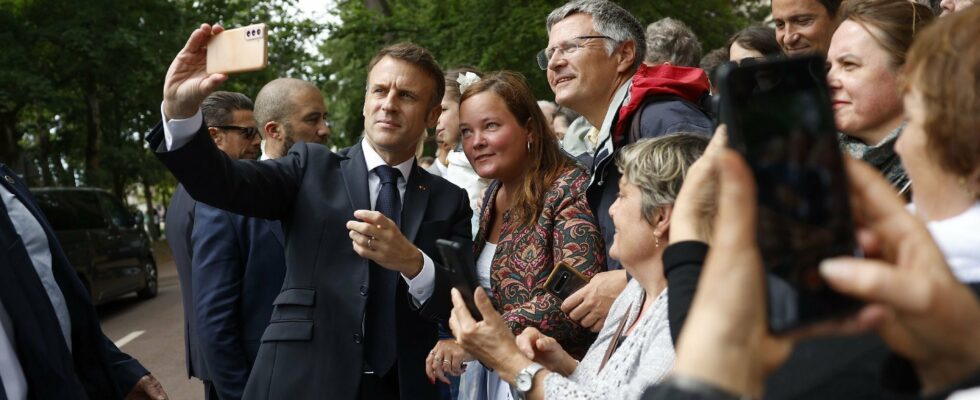There was first a moment of suspense on Sunday evening, when everyone understood that the result of the legislative elections was very different from the predictions of the last few days. Very quickly, however, as the projections were refined and confirmed, the first questions arose: what coalition? With whom? Which Prime Minister? On the left, they promised to present a candidate by the end of the week and demanded Matignon. The question of “what for?” was quickly swept aside as secondary. At the New Popular Front, they repeated that it would be “the program” and “nothing but the program”; on the far right, the substance was forgotten as accession to power was now improbable; in Macronie, they were temporizing, not unhappy all the same to see that all the policies pursued since 2017 had not been thrown into the dustbin of this early election by the will of their leader. In the general staffs as in the media, we concentrate on the rivalries of men, the alliances of parties, the balance of forces. Far, very far from what emerges from the concerns of a majority of French people, from the right as from the left, who want their leaders to take care of the problems of their daily lives rather than their own destinies.
In the coming days, if not weeks, the new parliamentarians will focus on issues that are beyond the reach of their fellow citizens. On July 18, they will meet at the National Assembly to elect a president of the Palais Bourbon, the next day, the vice-presidents and the day after that, the committee presidents. Before that, they will have had to choose their group of attachment, a strategic choice for the balance between political forces, ardently commented on by the media, but whose interest risks being very little perceived by the “people”. Another fact: whereas in 1997, it took four days to form a government around Lionel Jospin after the dissolution decided by Jacques Chirac, the configuration of 2024 suggests long weeks of negotiations that the French will only be able to observe without saying a word.
On the evening of June 9, however, when announcing his decision to dissolve the National Assembly, Emmanuel Macron affirmed that his action was guided by confidence “in the ability of the French people to make the fairest choice for themselves and for future generations.” He repeated his desire to be attentive to the people during his press conference on June 12: “our compatriots have expressed their concern and the feeling of not being listened to.” And once again, during his brief speech at the Elysée Palace on June 21, the evening of the Fête de la Musique: “in a democracy, it is the citizens who choose.” But on the morning of July 8, what did these citizens express when they turned out in large numbers to vote, ensuring a higher turnout (66.6%) than in previous elections of the same type? Those who found themselves in a Republican front configuration know who they voted against. But did they vote for? What conclusion and what legitimacy can be drawn from this election? On pensions, unemployment insurance and many other subjects, what do they expect from a future government?
Both on the left and in the center, voters were able to understand that, in the inter-round elections, political tactics prevail over substance to prevent the National Rally from obtaining an absolute majority, and now their expectations are much more precise. As for the National Rally voters who expressed a vote of conviction, rather than defense, they expect answers to their concerns, to be shown that purchasing power, access to care, and work are at the heart of political thinking, and that their feelings of anger, sadness, and worry are not brushed aside. Despite its proclaimed “defeat”, the RN has gathered 8.7 million ballots for its candidates that it is dangerous to ignore in the coming months, unless it fuels their resentment even more.
For more than fifteen years, elections have followed one another and disappointments have followed one another. In 2007, Nicolas Sarkozy did not follow through on his ambition to respond to the popular right-wing France. In 2012, François Hollande disappointed the left-wing electorate who had believed in his promises of a more egalitarian world. In 2017, again, Emmanuel Macron had raised new hope among a more urban and affluent section of the population, quickly shattered by his contradictions. None of the three managed to convince. Of course, this time, no one had placed much hope in these elections, marked by hastily formed alliances in the first round and a republican front in the second. But by quickly giving in to petty maneuvers, political leaders are highlighting more than ever the gap between the French and themselves. “There are more candidates to be Prime Minister than voters,” jokes a defeated Renaissance MP. A joke with the appearance of a warning.
